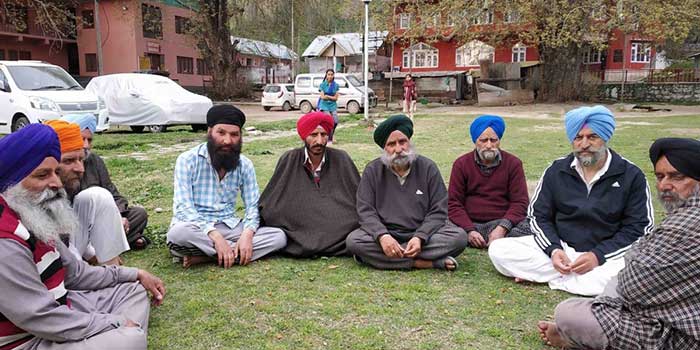
The ‘INDIA AGEING REPORT 2023,’ jointly conducted by the International Institute for Population Sciences and the United Nations Population Fund, provides a comprehensive overview of the aging demographic in Jammu Kashmir.
Jammu Kashmir emerges as a region with remarkable resilience against elderly poverty, boasting a mere 4.2 percent of its aged population falling below the poverty line.
Among the elderly, constituting 9.4 percent of the region’s population, Jammu Kashmir stands out with the highest life expectancy after the age of 60. Males exhibit a life expectancy of 20.3 percent, and females, 23.0 percent, making it the leader in this demographic indicator between 2015-19.
The LASI survey sheds light on the usage of assistive devices among the elderly in India. Despite the availability of such aids, only 44 percent of the elderly utilize them.
Notably, spectacles (85.2 percent) and walking sticks (18.9 percent) are the most commonly used devices. The usage pattern correlates with age, urban residence, higher wealth quintile, and educational levels.
Mental health concerns among the elderly are a critical aspect explored in the LASI report. Findings reveal that 15 percent of those aged 60 years and above are in the lowest 10th percentile of the composite cognition score.
Additionally, nearly 30 percent of elderly individuals exhibit depressive symptoms, with mental health issues correlating with factors such as education, age, gender, place of residence, widowhood, living arrangement, and work status.
Living arrangements play a pivotal role in the mental health of older persons. Traditional joint family systems have given way to altered living arrangements, leaving older individuals with limited support as their children migrate for employment. This shift significantly affects the mental health of the elderly.
Despite governmental efforts, the report underscores the need for increased attention from the private sector in addressing the physical, social, economic, and emotional vulnerabilities of the elderly.
Under Schedule VII of the Companies Act, 2013, corporations are mandated to allocate 2 percent of their net profits for social development. Amendments include aging-related initiatives such as developing vocational skills, livelihood enhancement projects, establishing old age homes, day care centers, and providing benefits for armed forces veterans and war widows.
This amendment presents an opportunity for financial and technical support from the corporate sector to improve the lives and living conditions of the elderly.
The report also indicated that Jammu Kashmir elders (aged 60 years and above) have great with awareness of social security schemes, adding that Jammu Kashmir had a mere 0.2 per cent of people who had the coverage of health insurance schemes among the elderly
As the elderly population continues to grow, bridging this awareness gap becomes imperative to ensure comprehensive well-being.
In conclusion, the ‘INDIA AGEING REPORT 2023’ underscores the multifaceted challenges and strengths within Jammu Kashmir’s aging population.
Collaborative efforts from both the public and private sectors are crucial to address these challenges and enhance the overall well-being and quality of life for the elderly in the region.




